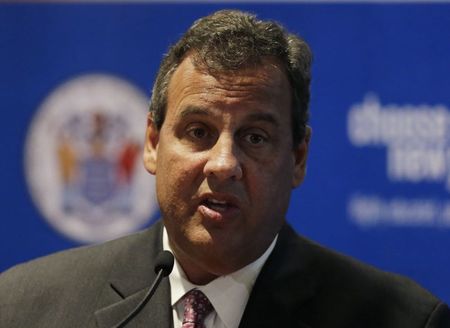By David Alire Garcia
MEXICO CITY (Reuters) - The United States should scrap its long-standing restrictions on crude oil exports, one of the top Republican prospects for the 2016 presidential race said on Wednesday.
New Jersey Governor Chris Christie said the crude export ban holds back the United States, adding his voice to a growing chorus of business-friendly U.S. politicians who say new markets should be sought for surging domestic supply.
On a trade mission to Mexico, Christie said a "key step to help realize our energy potential would be to open the global market for United States crude," according to a copy of a speech he delivered to the American Chamber of Commerce of Mexico.
Christie was visiting Mexico for the first time as governor in the run-up to a possible 2016 campaign for the presidency, a contest that could depend substantially on Latino voters in the United States, many of whom have family south of the border.
His speech on energy came just weeks after Mexico's Congress put the finishing touches on ending the 75-year-old monopoly of state oil giant Pemex, which has said it would like to buy U.S. light crude to improve refinery output.
Fully overturning the crude export curbs would require U.S. congressional approval that most consider unlikely in the near term. However, many argue the U.S. president could gradually allow for more oil to flow abroad through executive powers.
The ban was imposed after the Arab oil embargo of the 1970s, and advocates of ending it say the policy is obsolete due to booming ultra-light, sweet crude production from places like the Eagle Ford Formation in south Texas.
The glut of light sweet crude is unsuitable for many U.S. refineries along its Gulf coast configured for heavier crudes.
Pemex Chief Executive Emilio Lozoya said last month that importing light crude from the United States was "a very good idea" and could happen in the next few months.

Mexico has not imported crude since the late 1990s, instead preferring self sufficiency even as domestic oil production has declined by about 30 percent over the past decade.
(Reporting by David Alire Garcia; Editing by Cynthia Osterman)
